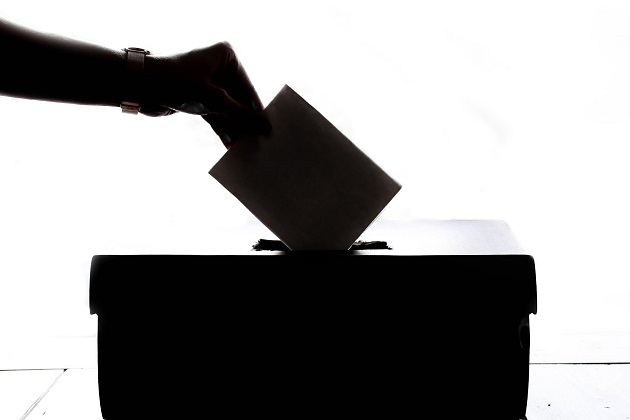Why voting in the European elections is important
A well-functioning Parliament is an important guarantor of a well-functioning European Union that knows its role and place.
BRUSSELS · 09 MAY 2019 · 10:00 CET

Introduction
In May, Europe votes for Members of the European Parliament. Why does this matter and what has the Christian faith got to do with this? In this short article, we’ll try to explain why the European elections are important. It has to do with how the European Union (and therefore our lives) will look like in five years’ time.
If you wish to step back and look at the bigger picture of what is happening in Europe’s politics, EEA has written or commissioned several resources to help you do this. Click here to find an overview paper or here to find the full set of resources.
As former French President Charles de Gaulle once said, “I have come to the conclusion that politics is too serious a matter to be left to the politicians.”
Brief introduction to the EU Institutions
The European Union has four governing bodies: the European Council, the Council of the European Union (aka Council of Ministers), the European Commission, and the European Parliament. All the institutions of the European Union are involved in decision-making in one way or another but the Parliament plays a pivotal role in the legislative process.
‘Brussels’ is quite an easy scapegoat for all that is wrong in our countries and in the Union as a whole. Some of that criticism might well be justified. At the same time, there are important checks and balances in place to hold those in power accountable and the European Parliament is one of the most important. A well-functioning Parliament is an important guarantor of a well-functioning European Union that knows its role and place.
The European Parliament
After Brexit, the Parliament will have 705 members. Together with the Council (of Ministers) of the European Union, the Parliament holds a key role in the law making process of the European Union. The Parliament elects the President of the European Commission and it approves the Commission as a whole. MEPs like to use this power, provoking huge rows by rejecting Commissioners, for example the Italian candidate Commissioner Rocco Buttiglione in 2004 who was rejected because of his conservative views on sexuality.
The Parliament is also tasked with controlling the European Institutions. It controls the way the European budget is spent, and together with the Council, it sets the budget. It is able to demand changes to legislation that the European Union wants to introduce.
Individual Members of the European Parliament (MEPs) can submit questions to the Commission and the Council about matters of concern, both to themselves and to us, their constituency. Thereby, they can hold these institutions accountable and urge them to respond. MEPs can also organise hearings and other events to mobilise support among their colleagues, this includes themes like Freedom of Religion or Belief, Freedom of Expression, human dignity, the family, and the sanctity of life.
Topics
Over the last few years, the Parliament discussed your privacy, the environment, the energy sector, migration and refugees, combatting terrorism, visas, border control, development aid, human rights, and much more! There has also been a special group of MEPs speaking up for Freedom of Religion or Belief.
Conclusion
This is all to say that the European Parliament is an important political body. Commentators predict that about half of the Parliament will change in May. This new Parliament we elect will help shape the European Union for the next five years.
If you want to have a say in how the European Union and our societies will look like in five years’ time, we encourage you to cast your vote prayerfully and responsibly.
Do you want to dig deeper?
If you want to know more about the European institutions and their responsibilities, you could check these websites:
- http://www.europarl.europa.eu/factsheets/en/sheet/7/the-principle-of-subsidiarity
- https://europa.eu/european-union/about-eu/institutions-bodies/european-council_en
- https://europa.eu/european-union/about-eu/institutions-bodies/council-eu_en
- https://europa.eu/european-union/about-eu/institutions-bodies/european-commission_en
- https://europa.eu/european-union/about-eu/institutions-bodies/european-parliament_en
This article is one of the resources produced by the European Evangelical Alliance socio-political team in relation to the European Parliament elections of May 23-26, 2019.
Published in: Evangelical Focus - European Evangelical Alliance - Why voting in the European elections is important
